Planning for your family’s future can feel overwhelming, but with the right legal guidance, it doesn’t have to be. An irrevocable trust is one of the most powerful tools for Texas families seeking to protect their assets. It works by moving assets out of your personal ownership and into a separate legal entity, a move that can significantly reduce or even eliminate estate taxes, protect those assets from creditors, and ensure your legacy remains intact for the next generation.
Understanding How an Irrevocable Trust Works
Think of an irrevocable trust as a secure vault for your most important assets. It’s a cornerstone of solid estate planning here in Texas. When you, as the grantor, create one, you make a permanent decision to transfer assets like real estate, investments, or business interests out of your name and into the trust's. This is a critical step in a comprehensive asset protection plan.
This transfer is the key to its power. Because you no longer legally own those assets, they generally aren't counted as part of your taxable estate when you pass away. For your loved ones, this can mean a massive savings on federal estate taxes, ensuring more of your hard-earned wealth gets to them, just as you planned.
The Core Principle: Control vs. Protection
At its heart, an irrevocable trust is a trade-off: you give up direct control over the assets in return for powerful, long-term protection. You appoint a trustee who takes on the legal responsibility—a fiduciary duty under the Texas Trust Code—to manage everything exactly as you've laid out in the trust document. This legal separation is what provides peace of mind.
This structure is what delivers the key benefits:
- Estate Tax Reduction: By moving assets out of your estate, you lower its total value. This can be the difference-maker that keeps your estate under the federal estate tax exemption limit.
- Asset Protection: Assets locked inside the trust are generally shielded from your personal creditors, lawsuits, or other financial claims.
- Avoiding Probate: Just like other trusts, assets held in an irrevocable trust sidestep the often long, public, and expensive probate process, allowing for a much quicker and more private transfer to your beneficiaries.
The infographic below provides a clear visual of how an irrevocable trust acts as a protective shield for your family's assets, locking them away in a secure legal structure.

As you can see, placing assets inside this "vault" effectively separates them from your personal estate, safeguarding them for the future. A skilled Texas estate planning attorney can help you design a trust that's perfectly tailored to your family’s unique situation and goals.
How Irrevocable Trusts Reduce Your Taxable Estate
One of the most significant advantages of an irrevocable trust is its power to shrink your taxable estate. Your estate is the total value of everything you own at the time of your death. If that value exceeds the federal estate tax exemption, your heirs could face a substantial tax bill.
An irrevocable trust works its magic by moving assets completely out of your personal ownership and into the trust's name. Because you don't legally own those assets anymore, they're typically not counted as part of your estate for tax purposes. This single strategic move can be the difference between preserving your wealth and handing a large portion of it to the IRS.
The Federal Estate Tax Exemption Explained
The federal government provides a high threshold before estate taxes apply. This is called the estate tax exemption.
For 2024, that amount is a significant $13.61 million per person. If your estate's value falls below this threshold, your heirs likely won't owe any federal estate tax.
However, for many successful Texas families—those with a thriving business, significant real estate, or a robust investment portfolio—exceeding this exemption is a real possibility. By strategically transferring assets into an irrevocable trust, you can lower your estate's value below that exemption line, shielding your legacy from a major tax liability.
A Texas Family Scenario: Before And After A Trust
Let's walk through a practical, real-world scenario to see this principle in action.
Scenario Before a Trust:
Imagine a Houston couple who built a successful manufacturing business valued at $15 million and have another $15 million in personal assets. Their total estate is $30 million.
For a married couple in 2024, the combined federal exemption is $27.22 million. This means their estate is $2.78 million over the limit. At a 40% tax rate, their heirs are facing an estate tax bill of roughly $1.11 million.
Scenario After Creating an Irrevocable Trust:
The couple consults with their Texas estate planning attorney and creates an irrevocable trust. They transfer the $15 million business into it.
Now, their personal taxable estate is just $15 million. This is well under their $27.22 million federal exemption. With one smart move, their family's potential estate tax bill drops from over a million dollars to zero. The business is protected and can pass to their children without being diminished by taxes.
This is the kind of powerful strategy that forms the bedrock of smart wealth preservation. To get a closer look at the mechanics, you can learn more about utilizing trusts for tax efficiency in our detailed guide.
Before we move on, let's clarify a common point of confusion: the difference between irrevocable and revocable trusts when it comes to taxes. They are treated very differently, and understanding this distinction is crucial for effective planning.
Irrevocable Trust vs. Revocable Trust Tax Implications
| Tax Consideration | Irrevocable Trust | Revocable Trust |
|---|---|---|
| Estate Tax | Assets are generally excluded from your taxable estate. | Assets remain part of your taxable estate. |
| Gift Tax | Transfers to the trust are considered gifts and may use your annual or lifetime exemptions. | Transfers are not considered gifts since you retain control. |
| Income Tax | The trust is a separate taxpayer and files its own return (Form 1041). | Income is taxed to you personally on your Form 1040. |
As you can see, only the irrevocable trust offers the significant estate tax savings we've been discussing. The revocable trust, while excellent for avoiding probate, doesn't provide the same tax-shielding benefits because you never truly give up control of the assets.
Gifting And Its Connection To Your Estate
When you move assets into an irrevocable trust, the IRS generally views that transfer as a gift. This is where two other important numbers come into play: the annual gift tax exclusion and the lifetime gift tax exemption.
- Annual Gift Tax Exclusion: In 2024, you can gift up to $18,000 to as many individuals as you want, every single year, without dipping into your lifetime exemption.
- Lifetime Gift Tax Exemption: This is tied directly to the estate tax exemption ($13.61 million in 2024). Any gifts you make above the annual exclusion simply reduce this lifetime amount.
A savvy strategy is to fund an irrevocable trust over several years using the annual exclusion. This allows you to steadily reduce your taxable estate without ever touching your lifetime exemption. To better understand the terminology, it's helpful to know the distinctions between the death tax vs. estate tax.
The use of irrevocable trusts became even more popular after the Tax Cuts and Jobs Act (TCJA) of 2017 nearly doubled the estate tax exemption. Even with today's high exemption levels, these trusts remain vital for high-net-worth families looking to protect their assets and plan for the future.
How Trusts Handle Income Tax
While the powerful estate tax benefits of irrevocable trusts often take center stage, it's crucial to understand how they handle income tax. This area can seem complex, but with clear guidance, you can ensure an irrevocable trust works for you when its assets start generating income.

First, it’s important to know that not all irrevocable trusts are treated the same by the IRS. They generally fall into one of two categories: grantor trusts or non-grantor trusts. This distinction is critical for your estate plan because it dictates who is responsible for paying the annual income taxes on the trust's earnings.
Grantor Trusts: A Clever Strategy
With a grantor trust, the person who creates it (the grantor) retains certain specific powers over the trust. Because of this lingering control, the IRS essentially ignores the trust for income tax purposes. This means all the income, deductions, and credits from the trust's assets flow directly onto the grantor's personal tax return.
This might sound counterintuitive. Why would you want to pay taxes on assets you've technically given away? It's part of a sophisticated wealth-transfer strategy.
By having the grantor pay the income tax each year, the assets inside the trust are allowed to grow completely unburdened by taxes. This is effectively an additional, tax-free gift you are giving to your beneficiaries every year, letting the trust's value compound without reducing your lifetime gift tax exemption.
The Deal with Non-Grantor Trusts
A non-grantor trust, on the other hand, is its own separate taxpayer. It files its own tax return (Form 1041) and pays its own taxes on any income it earns but does not distribute to the beneficiaries. This is where having a knowledgeable Texas trust administration lawyer becomes absolutely essential.
Why? Because the income tax brackets for trusts are incredibly compressed. This means a trust reaches the highest tax rates much faster than an individual does. For example, the top federal rate of 37% applies to trust income over just $15,650 in 2025. This is where smart planning and administration are key.
Taming the High Trust Tax Rates
The primary method for managing a non-grantor trust's tax liability is through strategic distributions. Here are a couple of common step-by-step approaches:
- Distribute Income to Beneficiaries: The trustee can distribute income to the beneficiaries. When this happens, the tax liability for that income passes to them. The beneficiary then pays the tax, but likely at their own, much lower personal income tax rate.
- Employ Tax-Efficient Investment Strategies: The trustee can focus on investments that do not generate significant taxable income, such as growth stocks that don't pay large dividends or tax-exempt municipal bonds.
These approaches demonstrate why active, forward-thinking management by a trustee is so important. Working with an attorney who understands these details ensures the trust is administered as tax-efficiently as possible, honoring your wishes while protecting your legacy. To take a deeper dive, check out our guide on tax strategies for Texas trusts.
Achieving Long-Term Asset Protection
While the tax benefits are a major draw, one of an irrevocable trust’s most powerful features is the financial fortress it can build around your family’s wealth. It's more than just a tax strategy; it's a proactive defense, shielding your legacy from future creditors, lawsuits, and other financial challenges that can arise unexpectedly.
This is true wealth preservation, ensuring the inheritance you've worked so hard to build remains secure for generations to come.

The concept is straightforward: when you legally transfer an asset to an irrevocable trust, you no longer own it. That clean legal separation means that if you are ever sued or a creditor makes a claim, the assets inside the trust are generally off-limits. Legally speaking, they aren't yours to take.
A Texas Scenario Protecting Professional Assets
Let's put this into a real-world Texas context. Imagine a successful surgeon in Dallas. She loves her work but is aware of the professional liabilities that come with her field. Over the years, she has built a significant investment portfolio and owns a beloved family vacation home in the Hill Country that she dreams of passing to her children.
To protect these personal assets from a potential malpractice suit, she meets with a Texas estate planning attorney to create an irrevocable trust. She then transfers her investment portfolio and the vacation home into it, naming her children as beneficiaries and her trusted brother as the trustee.
A few years later, a frivolous but costly lawsuit is filed against her practice.
Because the investment portfolio and the vacation home are legally owned by the irrevocable trust, they are completely insulated from the lawsuit's claims. Her personal and professional financial lives are separate, and her family's legacy is safe, regardless of the lawsuit's outcome.
This is a perfect example of how an irrevocable trust acts as a critical firewall, making it an especially vital tool for business owners, physicians, and other professionals in high-liability fields.
Trustee Responsibilities Under Texas Law
This powerful protection isn't automatic—it hinges on adhering to the rules and managing the trust properly. The trustee must meticulously follow the trust's terms and the requirements of the Texas Trust Code. Any sign that you, the grantor, are still treating the trust assets as your own—a concept called "commingling"—could give a creditor an opportunity to "pierce" the trust's protective veil.
This is precisely why the trustee's role is so critical and comes with strict fiduciary duties in Texas. A trustee must:
- Manage Assets Prudently: Make sound investment decisions that align with the trust's long-term goals.
- Keep Meticulous Records: Maintain completely separate bank accounts and detailed records of all trust activity.
- Act Impartially: Always act in the best interests of all beneficiaries, without favoritism or self-dealing.
For families looking to safeguard their wealth, the asset protection benefits of an irrevocable trust are invaluable. It provides a robust legal barrier, especially for those facing business or personal risks. To be effective for long-term care planning, such as for Medicaid, it is vital to understand the rules. You can see real-life situations in these Medicaid Look-Back Examples. The key takeaway is that creating a trust well in advance is essential. Our firm offers detailed guidance on safeguarding your wealth with asset protection in Texas, helping you build a comprehensive plan that stands the test of time.
Digging into Specialized Irrevocable Trusts
While the standard irrevocable trust is a powerful tool, the world of estate planning offers a variety of specialized versions. Not all irrevocable trusts are the same; different types are engineered for very specific financial goals. Think of it like this: you wouldn't use a screwdriver to hammer a nail.
Similarly, a knowledgeable Texas estate planning attorney will select the right tool for your unique situation, whether your goal is growing an investment portfolio, supporting a beloved charity, or ensuring a life insurance payout reaches your family without a tax burden. These specialized trusts showcase the flexibility and creativity of modern estate planning.
Grantor Retained Annuity Trusts (GRATs) for High-Growth Assets
A Grantor Retained Annuity Trust (GRAT) is a sophisticated strategy designed to transfer the future growth of an asset to your beneficiaries with little to no gift tax. It's the perfect choice for assets you expect to appreciate significantly, like stock in a growing family business or a dynamic investment portfolio.
Here’s a step-by-step breakdown of how it works:
- Funding the Trust: You, the grantor, place an asset poised for growth into the GRAT.
- Receiving Payments: For a set number of years, the trust pays you an annuity. This payment is calculated to return the original value of the asset plus a small interest rate set by the IRS.
- The Tax-Free Remainder: If the asset in the trust grows faster than that IRS interest rate, all the excess appreciation at the end of the term passes to your beneficiaries completely free of gift and estate taxes.
This strategy effectively "freezes" the asset's value for estate tax purposes, allowing future growth to transfer to the next generation without being taxed.
Charitable Remainder Trusts (CRTs) for Giving Back and Getting Income
What if you want to support a cause you care about while also securing an income stream for yourself or your family? A Charitable Remainder Trust (CRT) lets you do both, creating a win-win that blends philanthropy with significant tax advantages.
When you create a CRT, you split an asset's interest into two parts.
You or your chosen beneficiaries receive an income stream from the trust for a specified period. When that time is up, whatever is left—the "remainder"—goes to the charity you designated. This structure unlocks several key tax benefits.
The biggest advantages include:
- An Immediate Tax Deduction: You get a substantial income tax deduction in the year you fund the trust.
- Avoid Capital Gains Tax: You can fund the CRT with highly appreciated assets (like stocks), and the trust can sell them without triggering an immediate capital gains tax bill.
- Secure an Income Stream: The trust provides a steady flow of payments to you or your loved ones for life or a specific term.
A CRT is a wonderful way to build a lasting charitable legacy while also addressing your own financial needs.
Irrevocable Life Insurance Trusts (ILITs) to Protect Your Payout
Life insurance is a common tool for providing for loved ones, but many people are surprised to learn that a large death benefit can inflate your taxable estate. An Irrevocable Life Insurance Trust (ILIT) is a straightforward and incredibly effective solution designed to prevent that.
The process is simple. You create an irrevocable trust, and the trust itself purchases and owns your life insurance policy. You then make annual gifts to the trust, which the trustee uses to pay the policy premiums.
The result? When you pass away, the insurance proceeds are paid directly to the trust, not to your estate. This means the entire death benefit is completely free from federal estate taxes. It also keeps the funds out of probate and safe from creditors, ensuring your beneficiaries receive every dollar as you intended. Anyone with a sizable life insurance policy should seriously consider this strategy. A skilled Texas trust administration lawyer can ensure an ILIT is structured correctly to lock in these critical benefits.
Finding the Right Texas Attorney to Build Your Trust
We've explored the powerful world of irrevocable trusts, seeing how they can reduce estate taxes, shield your life's work from creditors, and even create strategic income tax advantages. These are not abstract concepts; they are real, tangible outcomes—like keeping a family business intact or ensuring a life insurance payout lands in your family's hands, tax-free.
However, achieving these results is not a DIY project. It requires a skilled hand to draft the legal documents and adhere to the Texas Trust Code precisely. This isn't just about making your trust valid; it's about making it resilient.
Why You Need a Pro in Your Corner
An experienced Texas estate planning attorney is more than just a document preparer. Think of them as the architect of your legacy, a strategic partner who ensures every detail aligns perfectly with your family's unique circumstances and financial goals.
Here’s what a dedicated attorney does for you:
- Tailors the Trust Document: They craft the language to match your specific objectives, whether that’s protecting assets, planning for a loved one with special needs, or establishing a charitable legacy.
- Ensures Legal Compliance: They navigate the complexities of the Texas Estates Code and fiduciary principles to construct a legal fortress around your assets.
- Helps You Select a Trustee: They guide you through the crucial decision of choosing a trustee and clearly define their fiduciary duties in Texas to prevent future conflicts.
An irrevocable trust is one of the most significant commitments you can make to your family’s future. Its success depends entirely on a precise legal architecture built to withstand future tax law changes and life's uncertainties.
This is where having legal counsel that offers clarity, confidence, and compassion makes all the difference.
Your Top Questions About Irrevocable Trusts Answered
Diving into estate planning can feel like navigating a complex maze. It’s natural to have questions, especially about a tool as significant as an irrevocable trust. Let's address some of the most common questions we hear from Texas families, providing the clarity you need to move forward with confidence.
Can You Really Never Change an “Irrevocable” Trust in Texas?
The word "irrevocable" certainly sounds permanent. While these trusts are designed for permanency, Texas law does provide some flexibility. Think of it less like a vault sealed forever and more like one with a very specific, multi-step combination lock.
For example, the trust can be drafted with certain flexible provisions from the outset. If that is not an option, another route is to obtain unanimous consent from all beneficiaries and then petition the court for a modification. There is also a legal process called "decanting," where a trustee can effectively "pour" the trust's assets into a new, updated trust. Understanding how to modify a trust in Texas is complex, but a skilled attorney can show you which options may be available.
What if I Need the Money I Put into an Irrevocable Trust?
This is a common and important concern. A fundamental principle of an irrevocable trust is that you, as the grantor, relinquish control over the assets. That is the trade-off for obtaining the powerful tax and asset protection benefits. As a general rule, you cannot simply take the money back if your circumstances change.
However, a well-designed plan can include a safety net. For example, a Spousal Lifetime Access Trust (SLAT) is a special type of irrevocable trust where your spouse is named a beneficiary. While you cannot access the funds directly, the trustee can make distributions to your spouse, which can then be used for shared family expenses. This creates a form of indirect access and highlights why it’s so critical to discuss all "what-if" scenarios with a Texas estate planning attorney from the beginning.
Who Should I Pick to Be the Trustee?
Choosing your trustee is one of the most critical decisions in the entire process. This person or institution is legally responsible for managing the trust’s assets and following your instructions to the letter. They have significant fiduciary duties in Texas, and it is not a role to be taken lightly.
You have a few main options:
- A Family Member or Friend: This is a common choice, but you should select someone who is not only trustworthy but also financially astute and, most importantly, impartial. Family dynamics can complicate trust administration.
- A Professional Fiduciary: This includes a bank or a dedicated trust company. They bring extensive expertise in administration, investing, and tax compliance. For complex trusts, their professional oversight can be invaluable.
We can help you weigh the pros and cons of each choice, ensuring you select a trustee who will protect your legacy and honor your wishes in accordance with the Texas Trust Code.
If you’re managing a trust or planning your estate, contact The Law Office of Bryan Fagan, PLLC for a free consultation. Our attorneys provide trusted, Texas-based guidance for every step of the process.







